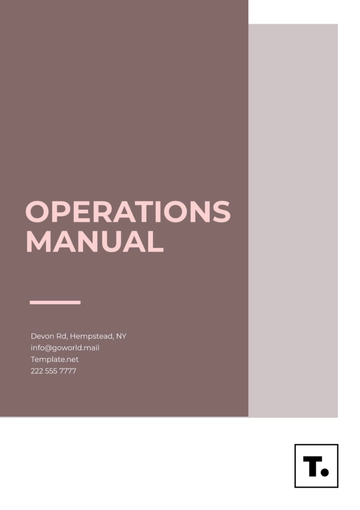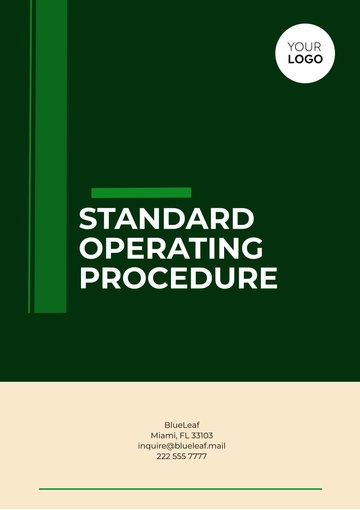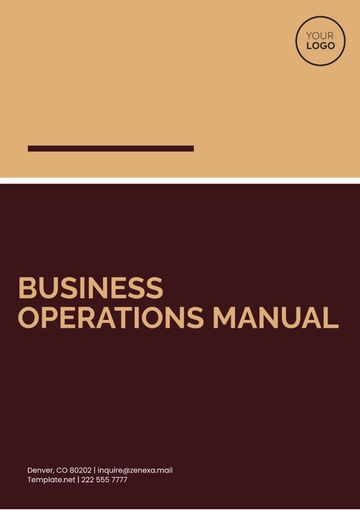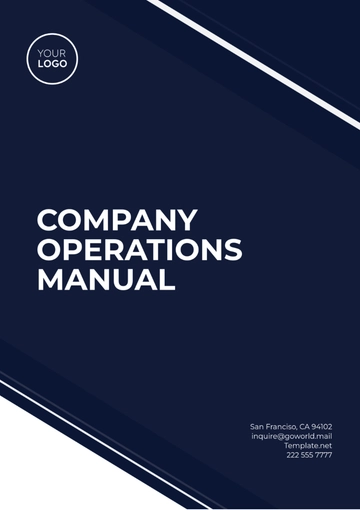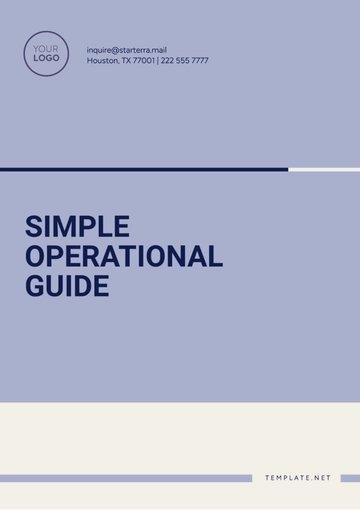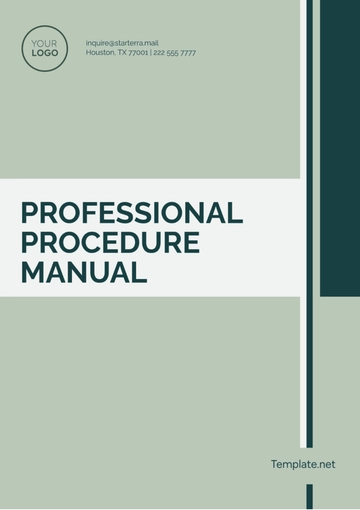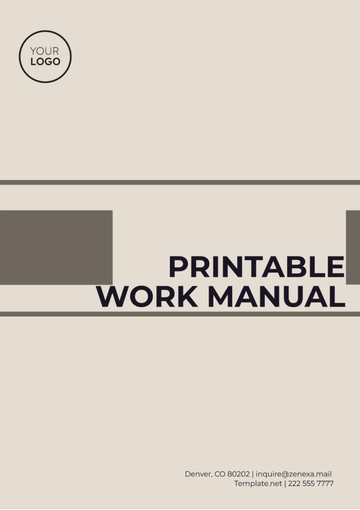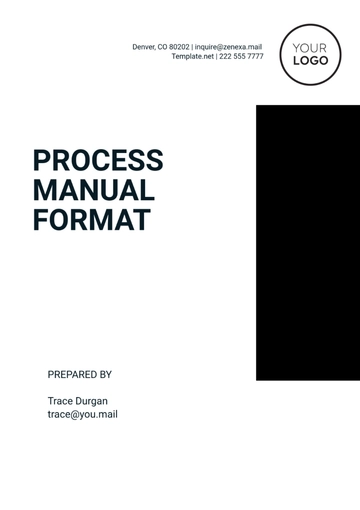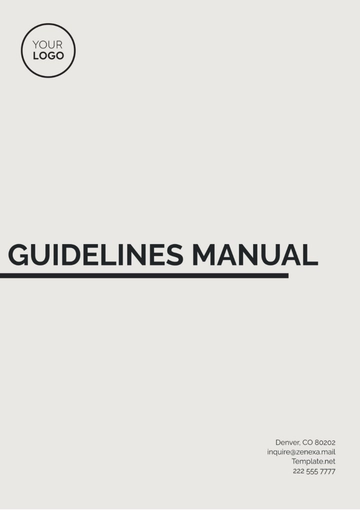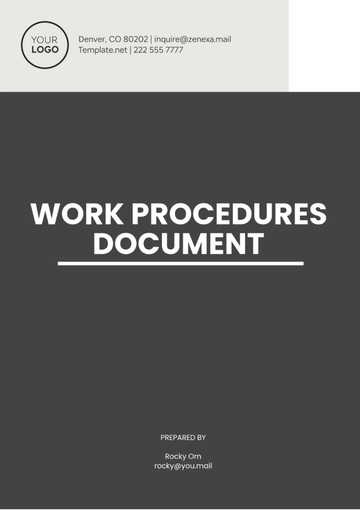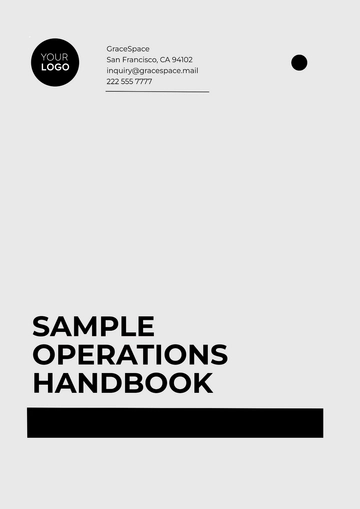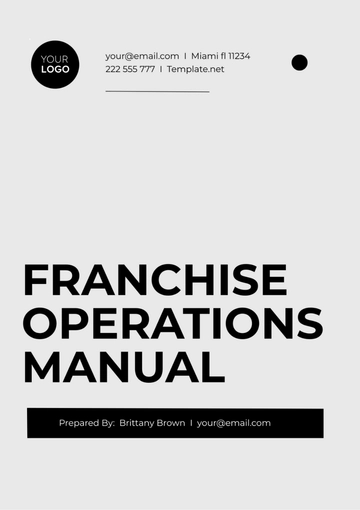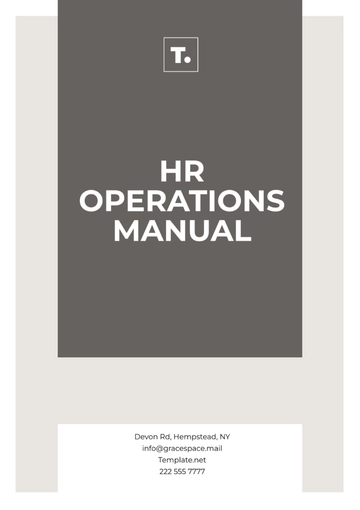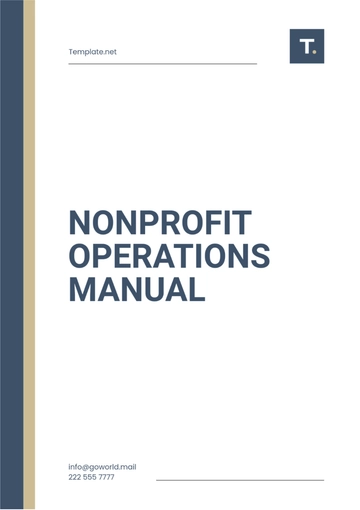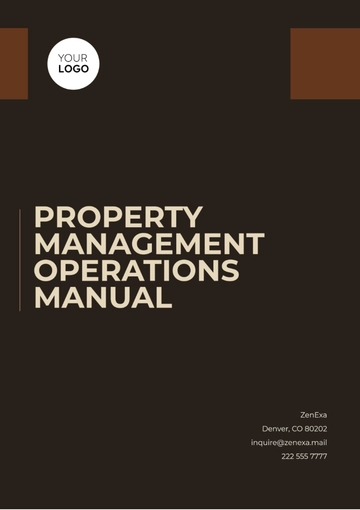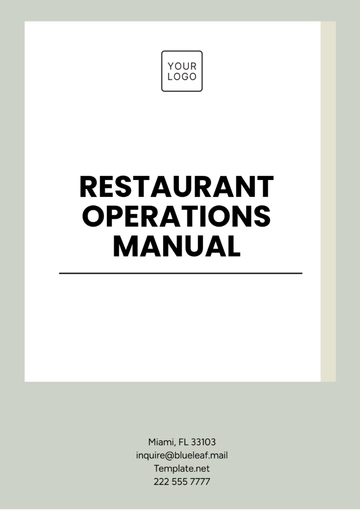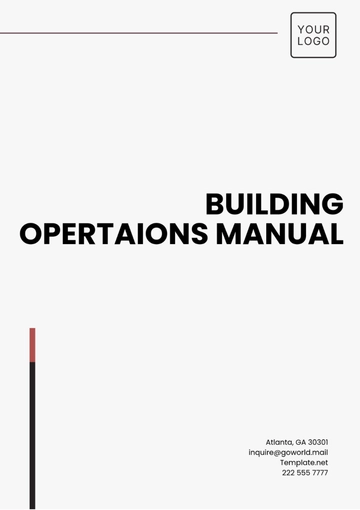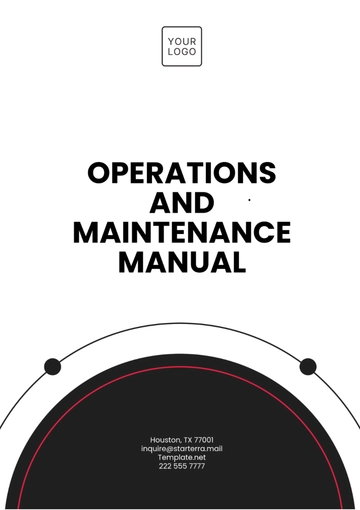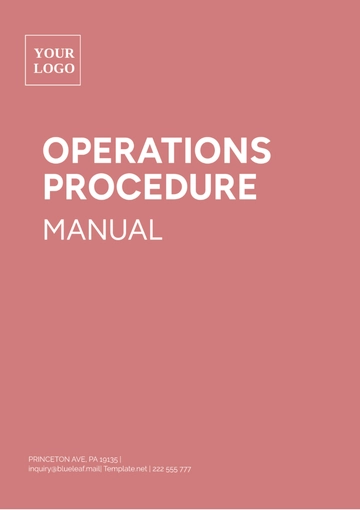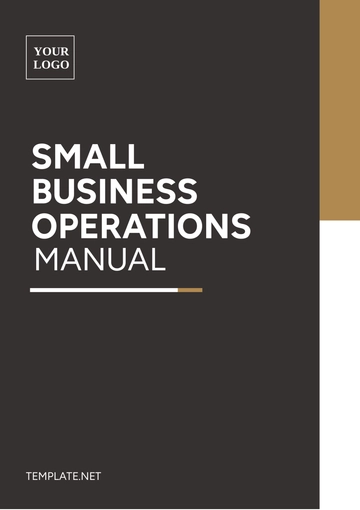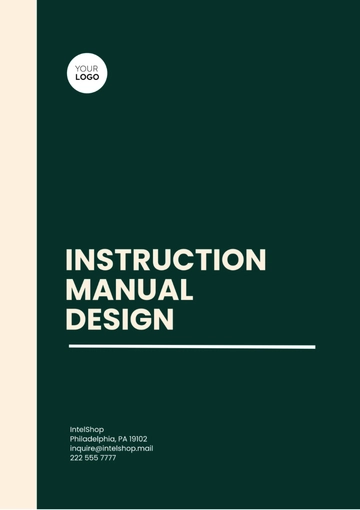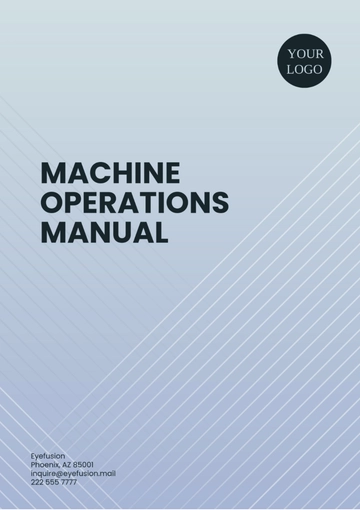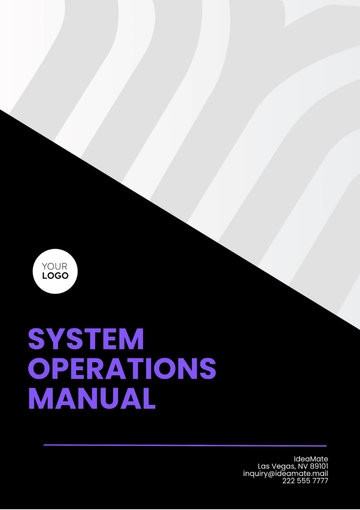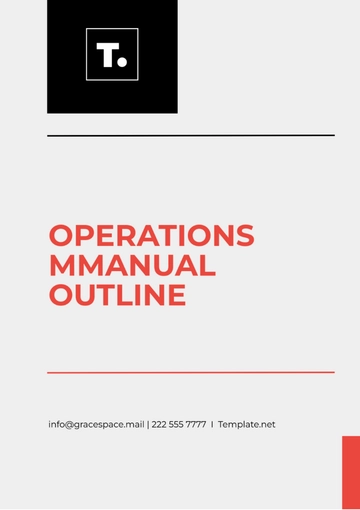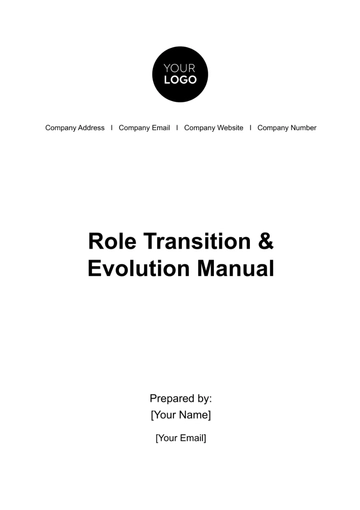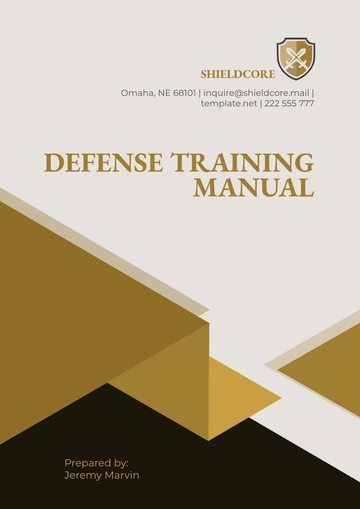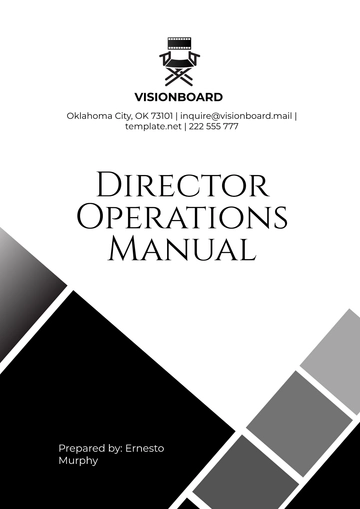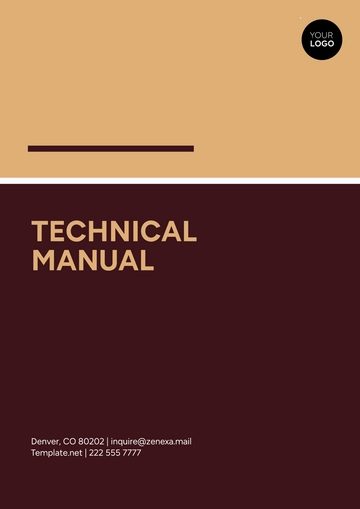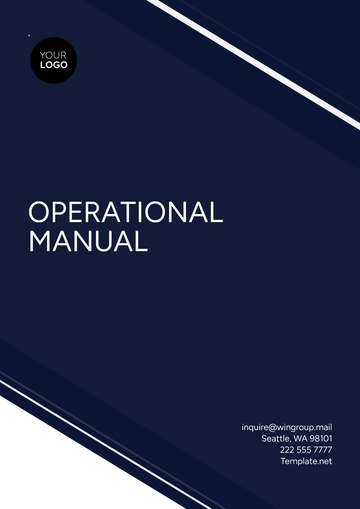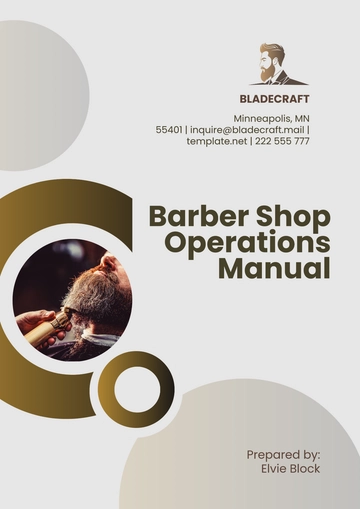Free Equipment Maintenance Manual
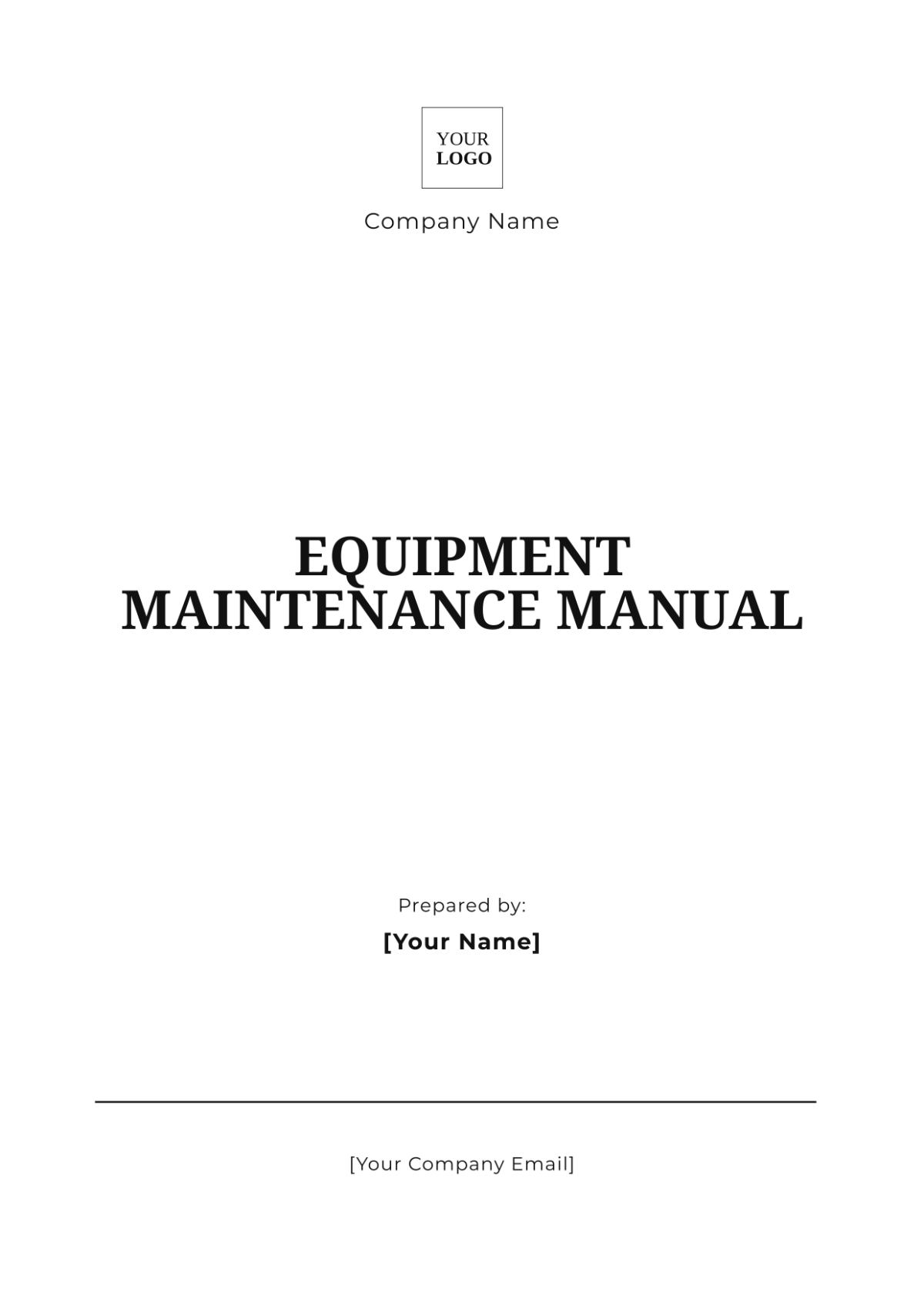
Prepared by: [Your Name]
I. Introduction
This Equipment Maintenance Manual is designed to provide comprehensive guidelines for the maintenance and servicing of industrial machinery. Adhering to these instructions will help ensure the machinery operates at optimal performance levels and achieves a long operational lifespan. This manual encompasses routine maintenance procedures, troubleshooting tips, and safety measures.
II. Safety Precautions
Proper safety practices are crucial when performing maintenance tasks. The following precautions should be adhered to:
Personal Protective Equipment (PPE): Always wear appropriate PPE such as safety goggles, gloves, and ear protection.
Lockout/Tagout Procedures: Ensure that machinery is completely shut down and locked out before beginning maintenance.
Hazard Identification: Be aware of potential hazards such as moving parts, electrical components, and high temperatures.
III. Maintenance Schedule
Regular maintenance is essential for the longevity of industrial machinery. The table below outlines a typical maintenance schedule:
Task | Frequency | Responsible Person | Notes |
|---|---|---|---|
Check fluid levels | Weekly | Maintenance Technician | Ensure all fluids are at recommended levels. |
Inspect belts and hoses | Monthly | Maintenance Technician | Replace any worn or damaged components. |
Clean filters | Quarterly | Maintenance Technician | Prevent clogging and ensure efficiency. |
Perform calibration | Annually | Service Engineer | Verify equipment accuracy and performance. |
IV. Service Procedures
Detailed service procedures are provided to guide maintenance tasks:
Lubrication: Regularly lubricate moving parts to reduce friction and wear. Use the specified lubricants and follow the manufacturer's recommendations.
Inspection: Conduct thorough inspections of mechanical components, electrical systems, and safety devices. Look for signs of wear, damage, or irregularities.
Cleaning: Keep equipment clean to avoid accumulation of debris that could affect performance. Use appropriate cleaning agents and tools.
V. Troubleshooting
In case of operational issues, refer to the troubleshooting guide below:
Issue | Possible Cause | Recommended Action |
|---|---|---|
Machine does not start | Power supply issues | Check power connections and fuses. |
Unusual noises | Worn bearings or belts | Inspect and replace faulty components. |
Decreased performance | Clogged filters | Clean or replace filters as needed. |
VI. Parts List
Part Number | Description | Quantity | Notes |
|---|---|---|---|
12345 | Main Drive Belt | 1 | For replacing the main drive belt. |
67890 | Hydraulic Pump Assembly | 1 | Includes pump, seals, and mounting hardware. |
23456 | Air Filter | 2 | For air intake system; replace every 6 months. |
78901 | Bearing (Ball, 6204) | 4 | For main rotating assembly. |
34567 | Oil Filter | 1 | Replace with every oil change. |
89012 | Control Panel Fuse (5A) | 5 | Spare fuses for control panel protection. |
45678 | Temperature Sensor | 1 | Monitors equipment temperature. |
90123 | Electrical Cable (10m) | 1 | For wiring repairs and replacements. |
Ensure to use genuine parts from [Your Company Name] or approved suppliers to maintain the machinery’s performance and safety. Keep this list updated and consult the manufacturer’s recommendations for any additional parts or specifications.
VII. Contact Information
For further assistance or to order replacement parts, please contact:
[Your Company Name]
Email: [Your Company Email]
Phone: [Your Company Number]
Website: [Your Company Website]
This manual aims to support effective maintenance practices and ensure the machinery remains in excellent working condition. For any queries or additional support, please reach out to the contact information provided.
- 100% Customizable, free editor
- Access 1 Million+ Templates, photo’s & graphics
- Download or share as a template
- Click and replace photos, graphics, text, backgrounds
- Resize, crop, AI write & more
- Access advanced editor
The Equipment Maintenance Manual Template offered by Template.net is a customizable, downloadable, and printable resource. Editable in our AI Editor Tool, it provides a structured approach to managing equipment maintenance. The template includes sections for maintenance schedules, procedures, and safety guidelines, ensuring that all equipment remains in optimal working condition and extends its lifespan effectively.
